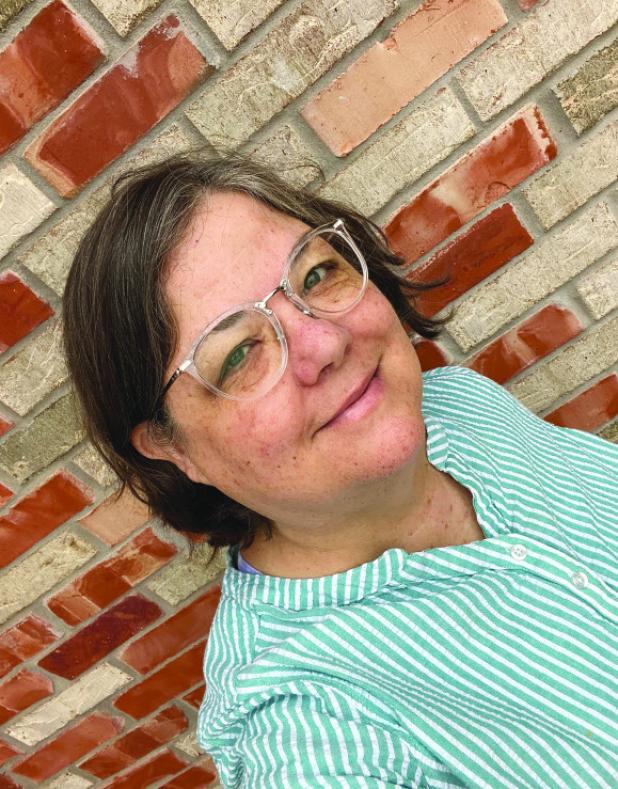
Your Best
with Mona Bernhardt, LCSW
Reverse SAD
I’m not shouting “SAD!” in the title, nor is this column about “reversing sadness.” Not exactly. I’m talking about Reverse Seasonal Affective Disorder
or Reverse SAD, which is something I struggle with most summers.
A lot of folks have heard about SAD, or regular Seasonal Affective Disorder, used as a label for a set of symptoms experienced in winter when days are shorter. Less daylight reduces levels of serotonin, the neurotransmitter that regulates many aspects of mood including happiness and well-being, and which can trigger depression. This particular form of depression is alleviated with the passage of time, a new season and longer days. One way for folks to cope more easily with SAD is to get a full-spectrum light fixture for their home and spend time daily in this light. You can find full-spectrum light bulbs in most stores where light bulbs are sold.
Here in Olney, we have no shortage of light during the summer. It’s estimated that somewhere between 10 and 30 percent of folks with SAD face the opposite struggle. They experience depression symptoms because of too much
sunlight which can reduce melatonin levels. Melatonin helps regulate sleep and is triggered by darkness. Melatonin also impacts serotonin levels, which can create a double whammy for people who struggle with Reverse SAD. Melatonin is also an antioxidant that protects the brain and regulates mood.
Changes in routines and schedules that come with summer vacations can only make matters worse, not to mention travel and jet lag. Activity levels also fall between intense heat and increased time spent indoors in air conditioning. Higher temperatures can be oppressive and agitating which can trigger mania or feelings of having too much energy.
So, what to do if you are experiencing Reverse SAD?
Bring back some routine. Especially before bed. Prioritizing sleep and routines around bedtime support well-being generally but are especially important since sleep is vital in diminishing mental health symptoms. Since Reverse SAD can impact melatonin levels and increase sleeplessness, making sleep a priority is, well, a priority.
Reduce light levels. Go to the movies, reduce light levels at home, increase time in darker spaces, enjoy the air conditioning. If you need to turn up the thermostat at home, go to public spaces, like the library, during the hottest part of the day and enjoy the community air conditioning. You also have additional excuses to wear hats and sunglasses (which will save you from sunburn as well)!.
Practice self-compassion. Depression is often accompanied by self-criticism. Remind yourself (and others you may know who struggle with depression in the summer) that this is a difficult time which will pass and it’s not your fault: you’re not bad or broken or wrong or any other negative adjective that may surface in your thoughts. You are just a human being strugglin, even if it is with the time of year, and you deserve kindness. Hang out with friends and family who remind you that you’re a unique, beautiful being.
Take super good care of yourself.
Eat healthy and drink plenty of water. Avoid bad habits that might feel like good self-care but ultimately, make things worse, like eating too much or unhealthy foods, drinking or spending money we don’t have. Whatever it is that you want to do that might not be the healthiest thing, find a healthy substitute. Fresh fruit rather than ice cream, free activities, or low cost crafts, rather than shopping. You’re worth the extra time and effort to do something healthy and you’ll feel better after.
Whichever type of SAD a person may struggle with, the good news is that eventually seasons change. And every year presents another opportunity to practice healthy ways of coping to get us through whatever that difficult season might be and increasing our overall resilience.
Agree? Disagree? Questions? All feedback welcome! Email YourBestHereOlney@gmail.com. Feel free to make suggestions if there’s a topic you’d like to hear more about. All feedback will remain confidential (unless limited by law). Mona Bernhardt, LCSW grew up in Olney and happily returned after living elsewhere for 40 years.
